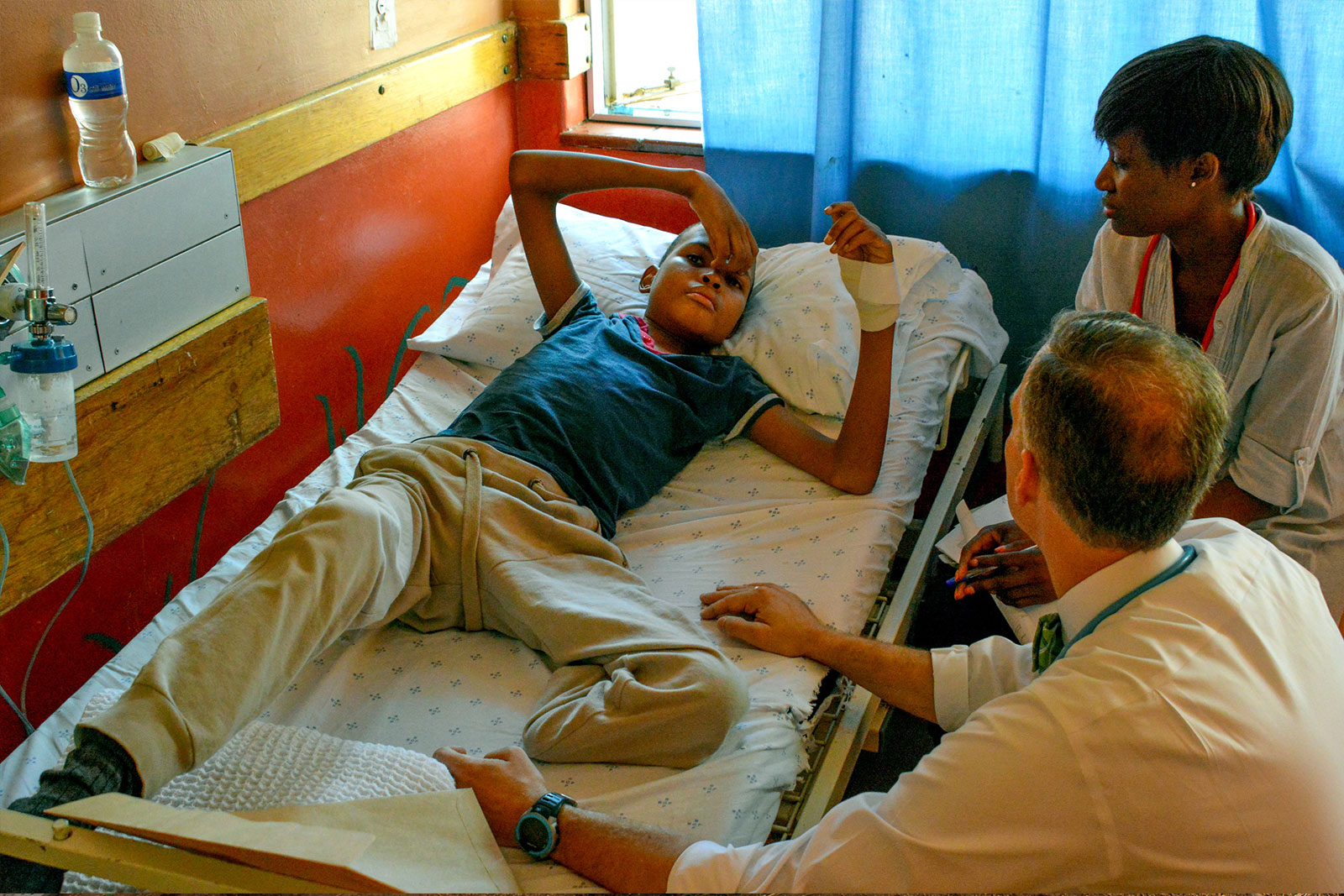

An international vision
Global health works to heal world’s most vulnerable
Texas Children’s Global Health made significant advancements in its HIV-AIDS, pediatric hematology-oncology and global women's health efforts in 2016, accomplished through a network of partners including the Baylor College of Medicine International Pediatric AIDS Initiative (BIPAI) at Texas Children’s Hospital network, Texas Children’s Cancer and Hematology Centers, foreign health ministries and governments, corporate and foundation donors, and non-governmental organizations.
HIV-AIDS
The Baylor College of Medicine Children’s Foundation-Malawi, an affiliate organization of BIPAI, received a $69.8 million grant from USAID to provide techincal assitance to HIV-AIDS programs in southern Africa.
BIPAI's first program, in Constanta, Romania, expanded its center of excellence last year, broadening the vision from a center exclusively dedicated to treating children with HIV to a center for the long-term care of adults with HIV as well. The center has now expanded its care for patients with hepatitis and tuberculosis — common co-morbidities with HIV infection.
Texas Children’s efforts to combat the global pediatric HIV/AIDS date back to 1996, when Dr. Mark Kline, now Texas Children’s Hospital physician-in-chief, traveled to Romania and saw the impact of the AIDS crisis on children in the region. Without access to drug therapies already saving lives in the U.S., HIV infection was a death sentence for children in Romania. On the flight home, Kline began to conceive of and outline what would eventually become BIPAI.
The international efforts of Texas Children’s Global Health might seem like a departure for a hospital with Texas in its name, but Kline saw it very differently.
“Texas Children’s Hospital was founded in 1954 with a commitment to serve all children across the community, without regard to race, ethnicity or religion.” he said. “It was a commitment to serve the entire community.
“Our definition of community has continued to evolve from the definition our founders had in 1954. Now we’re a global community. We aspire to be the best children’s hospital in the world, and you won’t achieve that distinction by serving only your local community. You’ve got to be impacting the health of children across the globe. Our commitment is to a healthy global community of children.”
Pediatric hematology-oncology
The success of BIPAI's initiatives didn’t go unnoticed among Kline’s colleagues. One of them was Dr. David Poplack, director of Texas Children’s Cancer and Hematology Centers. A conversation between Poplack and Kline was the first step toward adding pediatric hematology and oncology to the Texas Children’s Global Health program.
“We really wanted to address the problem of cancer in Africa, but one of the things that prevented us was the expense of chemotherapy,” Poplack said. “Dr. Kline explained that in many countries, they (BIPAI) have agreements with the ministries of health, and they assist with certain types of drugs. So that prompted us to get involved.”
In 2006, Dr. Parth Mehta, now director of the Global Oncology Program at Texas Children’s, traveled to Botswana. He spent three and a half years at Princess Marina Hospital in Gaborone, Botswana, and in that time, he tripled the number of patients diagnosed with cancer and increased survival rates nearly threefold. Since this early success, the program has expanded greatly. In 2016 alone:
- A new pediatric hematology/oncology unit opened at Kamuzu Central Hospital in the Lilongwe, Malawi.
- The Botswana-Baylor Children’s Center of Excellence and the government of Botswana signed an agreement to build the first children’s hematology and cancer center of excellence in Gaborone.
- A new pediatric oncology fellowship program was launched in Uganda. It will offer subspecialty training in hematology and oncology to pediatricians from six eastern African nations. The first classes of fellows (totaling eight at this writing) are already in training.
Like BIPAI, Global Hematology-Oncology Pediatric Excellence (Global HOPE) at Texas Children’s focuses on developing sustainability through training.
“We’re interested in capacity building,” Poplack said. “And capacity building in this case is a synonym for education and training. What we want to be able to do is to train pediatricians in Africa to become competent and expert in pediatric hematology and oncology — in other words, to become subspecialists.”
For more information about Texas Children’s Global Health, click here.







